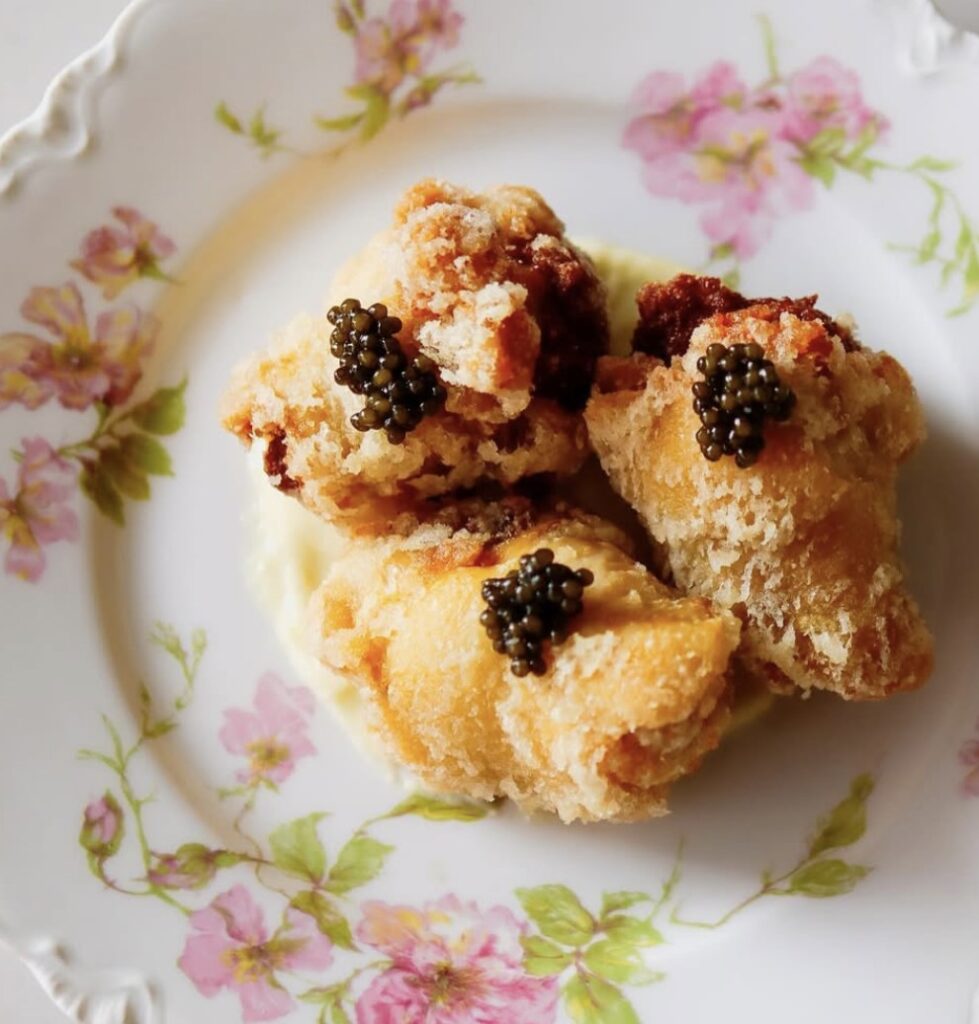What was supposed to be a period of popularity for caviar in the U.S. is now a moment of restraint as American tariffs on Chinese goods raise prices for the fish eggs preferred by chefs and their purveyors.
Bars and restaurants in Denver over the last decade have added dollops of caviar to scrambled eggs (Sunday Vinyl, 1803 16th St. Mall), fried chicken (Noisette, 3254 Navajo St.), hot dogs (Yacht Club, 3701 N. Williams St.) and even the crook of their customers’ thumbs (Brasserie Brixton, 3701 N. Williams St.). The mash-ups give a taste of the delicacy that elsewhere in Colorado can cost much more, such as this $148 caviar-stuffed crepe in Aspen.

Many have sourced their product from China, responsible for 85% of all the caviar from farm-raised sturgeon, according to an industry report by market researcher Technavio released last year. They are now adjusting their own prices for dishes that use Chinese kaluga or switching to less expensive sturgeon farmed in Europe.
The company that sources much of the caviar in Denver, the San Francisco-based Caviar Co., is cutting costs elsewhere to pay for the increase in Chinese goods, co-founder Petra Higby said. That includes the jars and tins used to package their product.
“We’re trying to move our business around as much as possible, because ultimately, if we get too expensive, chefs are either going to stop buying it or it’s going to come [down] to the consumer,” Higby said. “We don’t want caviar to disappear because it’s just too expensive and outpricing itself.”
One of the company’s clients, Brasserie Brixton, will raise the price for a “bump” of kaluga caviar by a dollar or two, said head chef Nick Dalton. The 15% increase on the cost of some of his caviar was the highest jump he’d seen in a product this year.
“We run a very high cost on caviar,” Dalton said in a text message, adding his goal “is to have fun with it and allow people to experience caviar without breaking the bank.”
Noisette’s executive chef, Tim Lu, bought Chinese kaluga from Caviar Co. until prices went up by $10 an ounce, he said. He now uses Polish sturgeon and Italian white sturgeon for the caviar on his crepes and fried chicken.
Released before the Trump administration set tariffs on Chinese goods as high as 145%, Technavio’s report projected the global caviar market would grow by more than $470 million until 2028. Higby now said she’s concerned vendors will keep their rates high the longer the tariffs stay in place.
“We’re really trying to do our best to protect our chefs and the longevity of our restaurants,” she said.
Subscribe to our new food newsletter, Stuffed, to get Denver food and drink news sent straight to your inbox.


